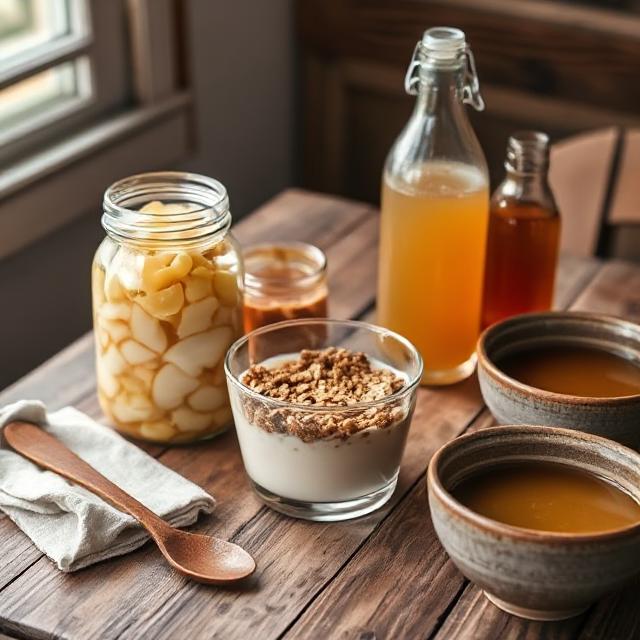Table of Contents
Introduction: The Gut as Your Second Brain
The gut is more than a digestive tube—it’s a neurological command center.
Within your belly resides the enteric nervous system (ENS), often called the second brain. It contains over 100 million neurons, producing neurotransmitters, regulating inflammation, and even modulating your sense of well-being.
Gut health isn’t just about digestion. It’s about cognition, immunity, mood, memory, and motivation.
Understanding this gut-brain axis transforms how we see nutrition—not as isolated nutrients, but as a dialogue between body and mind.
1. What Is the Gut-Brain Axis?
The gut-brain axis is the bidirectional communication network between your gastrointestinal system and your brain. It’s mediated by:
- Vagus nerve – the primary highway for signals
- Immune system – inflammation or balance
- Hormonal signals – like cortisol, ghrelin, and serotonin
- Neurotransmitters – including GABA, dopamine, and serotonin
- Gut microbiota – trillions of microbes that modulate mood, cognition, and behavior
When your gut is in harmony, your brain functions with clarity. When it’s inflamed or imbalanced, you may feel anxious, tired, foggy, or unmotivated.
2. The Enteric Nervous System: Your Second Brain
The enteric nervous system (ENS) is embedded in the gut wall and operates independently from the central nervous system, yet remains intimately connected.
Key Functions:
- Controls muscle contractions for digestion
- Regulates secretion of digestive enzymes
- Detects irritants and toxins
- Sends feedback to the brain via the vagus nerve
- Produces neurotransmitters like serotonin (90% made in gut!)
The ENS doesn’t “think” in the way your brain does, but it feels, reacts, and signals based on what’s happening in your inner world.
3. Gut Microbiome: The Invisible Organ
Your gut microbiome is a dense ecosystem of bacteria, viruses, and fungi—over 100 trillion organisms—living in a dynamic relationship with your body.
What It Does:
- Aids digestion of fiber and starch
- Synthesizes B vitamins and vitamin K
- Modulates immune function
- Communicates with the brain via metabolites and signaling molecules
- Influences mental health, including depression, anxiety, and even autism spectrum behavior
Microbial Imbalance (Dysbiosis):
When beneficial bacteria are outnumbered by harmful ones, it can lead to:
- Leaky gut (intestinal permeability)
- Chronic low-grade inflammation
- Neuroinflammation and mood disorders
- Poor nutrient absorption
4. Gut Health and Brain Chemistry
Here’s how gut health shapes your mental and emotional landscape:
| Brain Chemical | Gut Role |
|---|---|
| Serotonin | 90% made in gut; influences mood and sleep |
| Dopamine | Gut microbes modulate precursor production |
| GABA | Produced by bacteria like Lactobacillus; reduces anxiety |
| Cortisol | Gut health influences stress response |
| BDNF | Brain-Derived Neurotrophic Factor levels rise with probiotic use |
Gut dysfunction disrupts these pathways, leading to symptoms like:
- Depression
- Anxiety
- Brain fog
- Poor focus
- Fatigue
5. Common Threats to Gut Health
Several factors erode your gut barrier and microbial diversity:
- Ultra-processed foods (high in emulsifiers, sugar, and synthetic fats)
- Antibiotic overuse (kills good bacteria along with bad)
- NSAIDs (like ibuprofen; damage gut lining)
- Chronic stress (weakens immune system and tight junctions)
- Poor sleep (disrupts circadian rhythm of microbiome)
- Alcohol (kills beneficial bacteria, increases permeability)
Even nutrient absorption suffers when your gut lining is compromised.
6. Healing the Gut: Restoring the Mind-Body Connection
Eat Prebiotic-Rich Foods
These are the “food” for good bacteria:
- Onions, garlic, leeks
- Asparagus, artichokes
- Green bananas
- Oats and legumes
Add Probiotic Foods
Introduce beneficial microbes with:
- Yogurt (unsweetened)
- Kefir
- Sauerkraut
- Kimchi
- Miso
- Tempeh
Reduce Inflammatory Triggers
Cut down on:
- Refined sugar
- Industrial seed oils
- Processed meats
- Gluten (in sensitive individuals)
- Dairy (for some)
Sleep & Stress Management
Sleep is when your gut repairs itself.
Chronic stress increases cortisol and breaks down mucosal barriers.
Try:
- Meditation
- Breathing exercises
- Time in nature
- Sleep hygiene habits (dark, cool room, consistent bedtime)
Cycle in Gut-Repairing Nutrients
- L-glutamine – nourishes intestinal lining
- Zinc carnosine – tightens leaky junctions
- Collagen – supports mucosal layer
- Slippery elm & marshmallow root – herbal mucosal soothers
- Bone broth – rich in glycine and proline
7. The Role of Gut Health in Learning and Focus
A balanced microbiome supports cognitive performance through:
- Stable blood sugar = stable focus
- Reduced inflammation = faster signal transmission
- Higher neurotransmitter availability = sharper memory
- Fewer mood swings = more resilience during study
Impaired gut function, on the other hand, increases:
- Brain fog
- ADHD-like symptoms
- Fatigue
- Sleep disturbances
- Poor motivation to learn or retain information
8. Scientific Evidence Linking Gut and Brain
- Nature Microbiology (2022): Disrupted microbiota alters hippocampal neurogenesis and memory formation.
- Cell (2020): Gut-derived GABA production by Bifidobacterium and Lactobacillus linked to reduced anxiety-like behavior.
- Frontiers in Psychiatry (2019): Probiotic supplementation significantly reduced depressive symptoms.
- Nutrients (2021): Dietary fiber intake correlated with reduced systemic inflammation and better cognitive flexibility.
Conclusion: The Gut Feeds the Mind
You are not separate from your stomach—you think with it, feel with it, and react through it.
Your gut is a neurochemical factory, immune battleground, and emotional regulator all in one. Nourishing your microbiome and intestinal lining isn’t just about avoiding bloating—it’s a direct investment in mental performance, clarity, and calm.
A healthy gut doesn’t just digest food.
It translates nutrition into cognition.
It transforms meals into mood.
It anchors your mind inside your body.




